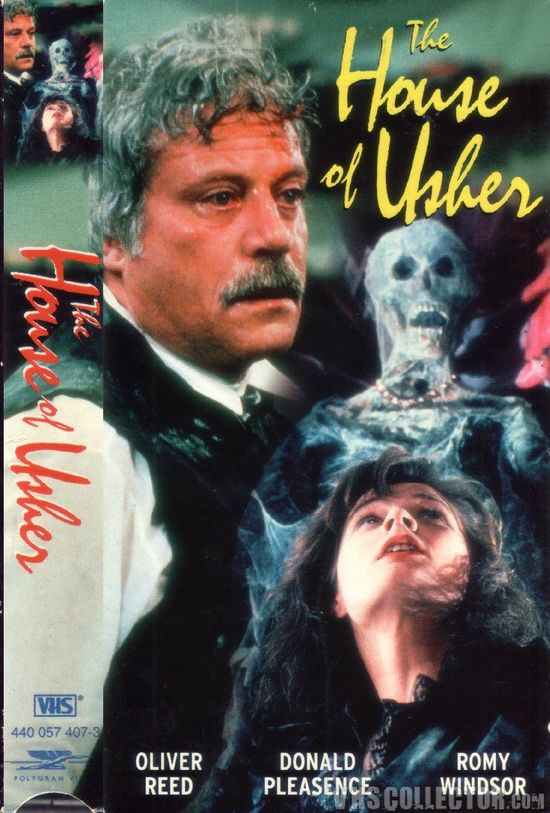Table Of Content

This short story illustrates the ability of Poe to create an emotional tone in his work by employing feelings such as guilt, doom, and fear. The emotions are central to the personality of Roderick Usher, who has been suffering from an unknown disease like many of the characters of Edger Allan Poe. ‘The Fall of the House of Usher’ is probably Edgar Allan Poe’s most famous story, and in many ways it is a quintessential Gothic horror story. We have a mysterious secret afflicting the house and eating away at its owner, the Gothic ‘castle’ (here, refigured as a mansion), premature burial (about which Poe wrote a whole other story), the mad owner of the house, and numerous other trappings of the Gothic novel. Poe condenses these into a short story and plays around with them, locating new psychological depths within these features.
From Usher to Broadway: 'A Strange Loop' lights up the stage in San Francisco
House of Usher (also known as The Fall of the House of Usher) is a 1960 American gothic horror film directed by Roger Corman and written by Richard Matheson from the 1839 short story "The Fall of the House of Usher" by Edgar Allan Poe. The film was the first of eight Corman/Poe feature films and stars Vincent Price, Myrna Fahey, Mark Damon and Harry Ellerbe. The story explicitly ties the physical House of Usher to the Usher lineage, stating that the peasants in that domain use the phrase “House of Usher” for both.
Poe's Short Stories (SparkNotes Literature Guide)
But then he starts experiencing disturbing and violent visions — attacks from the cat, dead animals — to the point where he uses Thor’s hammer (a gift from Chris Hemsworth, naturally) to tear his apartment apart looking for the cat. Thinking he sees the feline out on his balcony, he chases after it in a rage… and falls off the ledge to his death on the street below. During a heated argument with Roderick, Madeline suddenly falls into catalepsy, a condition in which its sufferers appear dead. Roderick knows that she is still alive, but convinces Winthrop that she is dead and rushes to have her entombed in the family crypt beneath the house.
Fall of the House of Usher: Is Mike Flanagan's Poe adaptation as scary as his other Netflix shows? - Slate
Fall of the House of Usher: Is Mike Flanagan's Poe adaptation as scary as his other Netflix shows?.
Posted: Tue, 10 Oct 2023 07:00:00 GMT [source]
Symbolism, Imagery, Allegory
As Roderick nears the conclusion of his story, which jumps back and forth between his early years working at Fortunato and the events that led up to each of his children's deaths, he finally arrives at the fateful night that changed everything, New Year's Eve of 1979. The story “The Fall of the House of Usher” belongs to the Gothic Fiction. There is a sentient house, an underground tomb, a dead body, and dark and stormy nights. “Supernatural Gothic” is one of the subgenres of Gothic fiction. In supernatural gothic, weird, and strange things, happenings can be attributed to the supernatural happening.

His mental health deteriorates faster as he begins to hear Madeline's attempts to escape the underground vault she was buried in, and he eventually meets his death out of fear in a manner similar to the House of Usher's cracking and sinking. Roderick and Madeline are twins and the two share an incommunicable connection that critics conclude may be either incestuous or metaphysical,[7] as two individuals in an extra-sensory relationship embodying a single entity. To that end, Roderick's deteriorating condition speeds his own torment and eventual death. As the narrator reads of the knight's forcible entry into the dwelling, he and Roderick hear cracking and ripping sounds from somewhere in the house. When the dragon's death cries are described, a real shriek is heard, again within the house.
Popular pages: Poe’s Short Stories
It was shortly after this that Auggie arrived at the house to hear Roderick's confession. Only, as evidenced by the noises coming from the basement, Madeline wasn't quite dead. Decades later, once it became clear that Verna was the one killing off the Usher children, Madeline tried to sidestep the deal by convincing Roderick to kill himself.
I say that even their exceeding density did not prevent our perceiving this — yet we had no glimpse of the moon or stars — nor was there any flashing forth of the lightning. But the under surfaces of the huge masses of agitated vapor, as well as all terrestrial objects immediately around us, were glowing in the unnatural light of a faintly luminous and distinctly visible gaseous exhalation which hung about and enshrouded the mansion. It was thus that he spoke of the object of my visit, of his earnest desire to see me, and of the solace he expected me to afford him.
Much to the narrator’s surprise, Roderick claims that the Usher mansion is sentient and that it exercises some degree of control over its inhabitants. He declares that his illness is the product of “a constitutional and a family evil.” (The narrator later dismisses this as a cognitive symptom of Roderick’s “nervous affection.”) Roderick also reveals that Madeline, his twin sister and sole companion in the house, is gravely ill. According to Roderick, Madeline suffers from a cataleptic disease that has gradually limited her mobility.
Episodes8
On a stormy autumn (with an implied pun on the word fall?) evening, a traveler—an outsider, like the reader—rides up to the Usher mansion. This traveler, also the first-person narrator and boyhood friend of Roderick Usher, the owner of the house, has arrived in response to a summons from Usher. We share the narrator’s responses to the gloomy mood and the menacing facade of the House of Usher, noticing, with him, the dank lake that reflects the house (effectively doubling it, like the Usher twins we will soon meet) and apprehensively viewing the fissure, or crack, in the wall. Very soon we understand that, whatever else it may mean, the house is a metaphor for the Usher family itself and that if the house is seriously flawed, so are its occupants.
The narrator unwittingly draws the whole structure by undermining the fear of the outside. The poem “Mad Trist” and Madeline escapes also show the similar yet playful crossing of the borders. Thus Poe buries the pun in tales in an invented severity of medieval romance, and this earned him popularity in the magazines of America.
After all, Roderick Usher is a poet and artist, well-read (witness the assortment of books which he and the narrator read together), sensitive and indeed overly sensitive (to every sound, taste, sight, touch, and so on). Many critics have interpreted the story as, in part, an autobiographical portrait of Poe himself, although we should be wary, perhaps, of speculating too much about any parallels. Several days later, Roderick tells the narrator that Madeline has died, and they lay her to rest in a vault. In the days that follow, the narrator starts to feel more uneasy in the house, and attributes his nervousness to the gloomy furniture in the room where he sleeps. The narrator begins to suspect that Roderick is harbouring some dark secret.
Not only does the narrator get trapped inside the mansion, but we learn also that this confinement describes the biological fate of the Usher family. The family has no enduring branches, so all genetic transmission has occurred incestuously within the domain of the house. The peasantry confuses the mansion with the family because the physical structure has effectively dictated the genetic patterns of the family. And now, some days of bitter grief having elapsed, an observable change came over the features of the mental disorder of my friend. He roamed from chamber to chamber with hurried, unequal, and objectless step. The pallor of his countenance had assumed, if possible, a more ghastly hue — but the luminousness of his eye had utterly gone out.
On the one hand, the house itself appears to be actually sentient, just as Roderick claims. Its windows are described as “eye-like,” and its interior is compared to a living body. On the other hand, there are plenty of strange things about the Usher family.
Throwing a bookend at Alessandra’s head “was not out of spite or cruelty,” said Miller. Unlike other people in this episode, her death wasn’t about that. She truly wanted to save everyone.” Yeah, well, so much for that. Camille (Kate Siegel) couldn’t let her animosity toward her half-sister, Victorine LaFourcade (T’Nia Miller), rest, so she goes to Vic’s research facility to dig up more dirt on her unethical experiments.

No comments:
Post a Comment